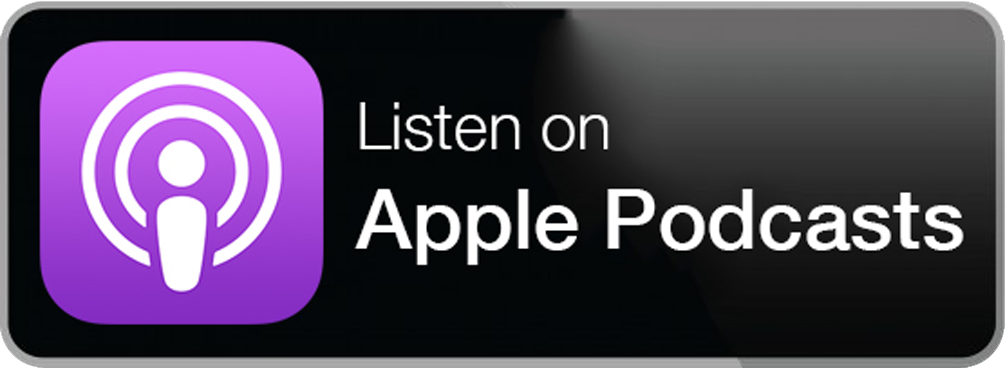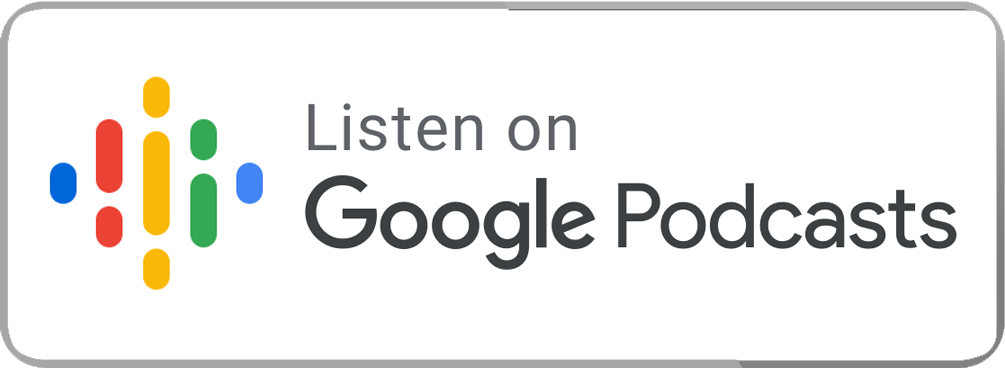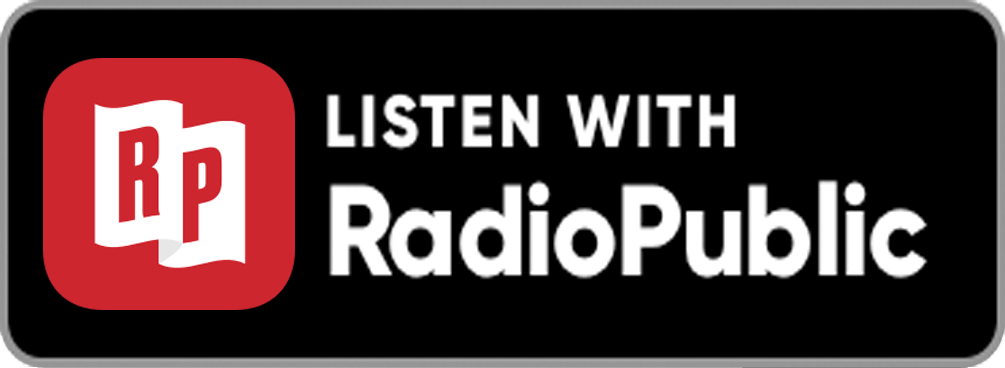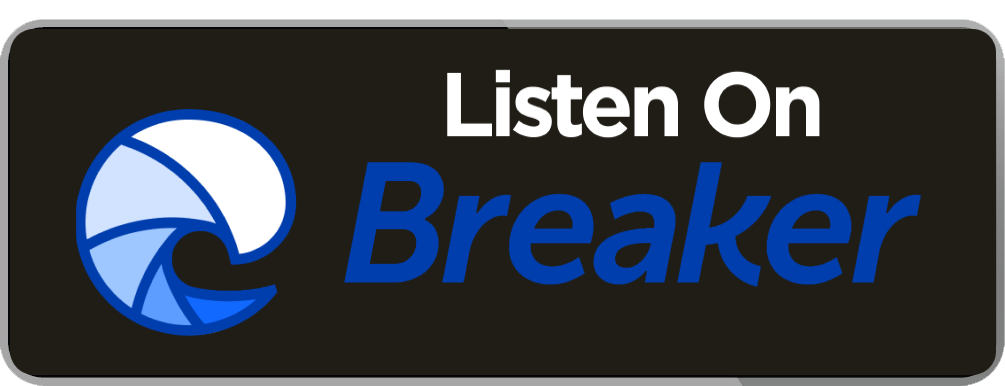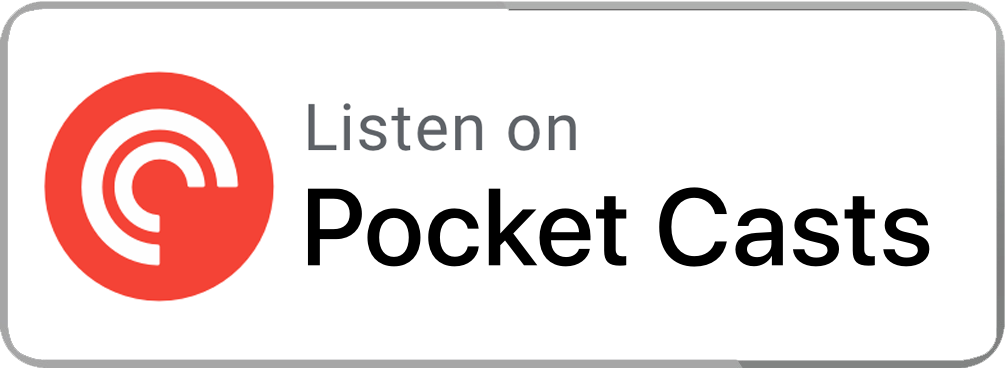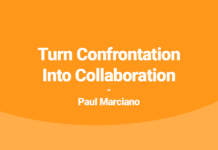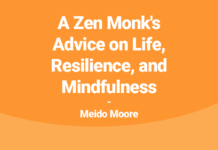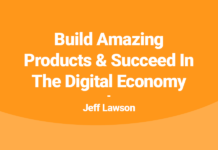Stephen M. R. Covey is the former President and CEO of Covey Leadership Center, which, under his direction became the largest leadership development company in the world. He is the New York Times bestselling author of The SPEED of Trust: The One Thing that Changes Everything.
Audio Player
Transcript:
Kevin Kruse: Stephen, welcome to the show.
Stephen M.R. Covey: Hey, Kevin. Great to be with you. I'm excited to be here.
Kruse: I'm excited to have you, and I told you to hold some thoughts because I was so excited just in our pre-chat, I wanted to get us rolling. I mentioned in your intro that your book is The Speed of Trust: The One Thing That Changes Everything. And I want to ask you why is it the one thing? Why is it so important? And I know you've got a new edition of the book out, and you say it's more important and relevant now than ever before. Tell me about that.
Covey: Yeah. Well, it's interesting, Kevin, because I remember when I was coming up with the subtitle for the book, The Speed of Trust, and I wrote The One Thing That Changes Everything, and I had a lot of people, close friends, others saying, “Stephen, you can't say that. I mean, that's too bold a promise. That's too bold a statement: The One Thing That Changes Everything.” And I said, “The reason I'm saying it is that it's very real because trust is like … It's a rising tide that lifts every boat when the trust is high. And low trust, a destructive tax that gets you at every gain.” So everything we need to do today we can do better if we start with trust.
And so when you look around, the things we need to do … This is why this is so relevant. Today, we've got to collaborate. It's the age of collaboration. You can't collaborate without trust. You can coordinate without trust, but real collaboration requires trust. We have to innovate today. Innovation is the rage, where everyone's saying, “We've got to innovate and improve and be relevant.” And there's overwhelming data that innovation flourishes when there's differences that collide in an environment of trust, but if people don't trust each other and if they're not willing to take the risk and make a mistake and learn from it, they don't innovate. So trust is foundational.
Look at our multi-generational workforce that we have today. Trust is the underlying thread for all of us, especially millennials. They want to be trusted. I like to say, “Millennials don't want to be managed. They want to be led. They want to be inspired. They want to be trusted.” I look at the whole rise of the sharing economy. That's all based upon trust. The reputation economy, it's based upon trust. And it is the currency of our world today. So trust has always mattered, but even more so today. In a world of declining trust, this is a precious asset, and so that's why it's more relevant than ever before.
And the reason why it's the one thing that changes everything is simply because it is like a multiplier for everything else that you're trying to do. It makes you better. You still have to do those other things, but you can do it better when you start with trust. And so it's always mattered, but I think, Kevin, never more so than today in a world of declining trust with all this change and disruption that's hitting us and a greater need for collaboration, for innovation, and for really inspiring people, especially millennials. And so trust is really an idea whose time has come, is what I believe. It mattered 10 years ago. It is even more important today.
Kruse: Now, I'm going to go off script and ask you about why you think trust is declining. We are in a world of increased innovation and collaboration, so one might think, “Well, trust must be rising to enable that,” but pretty much everybody who's measuring it and looking at it is showing trust is declining. And it's not just in the last two years. There's some things politically that accentuate this, but it's not a two-year phenomenon. So what's going on with trust?
Covey: Yeah. Well, I'll tell you what. Just like trust itself can be contagious, when people trust each other, it tends to spread. What's even more contagious is distrust, and that can spread the other direction, where if people become a little bit more careful, more cautious, more guarded, more cynical, more suspicious, people will respond back more careful, more cautious, guarded, suspicious, cynical because nobody wants to get burned. And we can find ourselves perpetuating a vicious downward cycle of distrust and suspicion creating more distrust and suspicion and everyone feeling justified.
And what's happening is, if you look in our world and you look at institutions, trust in media going down, and in many parts of the world, it's never been lower than it is today. Trust in government, trust in political parties, trust even in NGOs sometimes has gone down. Trust in business sometimes going down. And what happens is a low-trust world tends to perpetuate more distrust, where people don't want to get burned, so they respond back. And we're finding ourselves, in many respects, perpetuating this cycle.
Now, look, you're exactly right. There are pockets of trust. An island of trust in a sea of distrust is happening with leaders, with teams, with organizations that are learning that if you want to collaborate and innovate, you've got to create trust. And so we're seeing it being counteracted, but it's because it's intentional. It's deliberate. It's people saying, “We've got to build a culture, a high-trust culture,” and that makes a profound difference to be able to innovate and collaborate.
But if we don't intentionally focus on trust, we'll tend to drift towards distrust, especially in a world where that tends to be happening. So we have to counteract it, and the good news is you can counteract it, if you're intentional, if you focus on doing this deliberately, building trust on purpose. But in a high-trust team and a culture, you can do that, and we're seeing leaders, teams, organizations doing that even in a world of declining trust. So the challenge is also our greatest opportunity. To be a high-trust player in a low-trust industry or a low-trust world is a huge advantage. So that's the crisis, and it's also the opportunity, to build high trust in a low-trust world.
Kruse: Love it.
Covey: And there's people that are doing it.
Kruse: You describe in the book five waves of trust: self-trust, relationship trust, organizational trust, market trust, and societal trust. We, of course, don't have time in our short chat today to cover them all, but let's talk a little bit more about that first wave. So tell me about self-trust.
Covey: Yeah, the whole premise is that trust is an inside-out process, meaning it starts with ourselves. We've got to look in the mirror. Do I trust myself? Do I give to my team a leader they can trust, a partner they can trust? Is it smart to trust me? Because I'll tell you what, Kevin, if someone doesn't trust themself, how are they going to ever be able to sustain and grow trust with others? It's just very hard to do because that distrust of self leaks out.
I was just with a business school where they were talking about a leader that they knew that just didn't trust anyone. He built a low-trust culture. They had checks, controls, and everything. He didn't empower people. He was a genius, but he just didn't trust anybody at all. And it kind of came out later, he revealed his paradigm to somebody. He said, “Look, you know what? Hey, I do what I have to do to get ahead and, yeah, I kind of basically,” in my words, “lied, cheated, stole to get ahead. And I did what I had to do,” type of thing.
Kruse: Right.
Covey: And the presumption that he had was everyone else does what they have to do. They lie, cheat, steal to get ahead, and therefore, I don't trust myself. If that's the paradigm, you'll very seldom see that person capable of trusting others. So self-trust precedes relationship trust. But when a person does trust themself and when they also are credible, they give to others a person, a leader that they can trust, in other words, it's smart to trust them because of who they are, their credibility, their character, their competence, then from there it becomes natural to build relationship trust. And when you build trust in relationships, it becomes natural and abundant to build trust on a team or between teams, and then you kind of ripple out.
That's the whole idea of the five waves. We don't have to go through them all right now, but the whole idea of five waves is it's a ripple effect, starting with yourself, rippling out to your relationships, to your team, to your organization, to your external stakeholders, to all of society. And so when someone wants to diagnose and kind of assess the situation, how is the trust level, they look at the outside, they look at the market, they look at society, they look at the organization. Outside in helps us diagnose, but if we want to change something, develop it, transform it, the way we do that is start at the inside and move out. So that's self-trust, starting with yourself, and then rippling out from there.
And I will add one more thing on self-trust. Not only is it trusting yourself, but you want to make sure that it is smart that others trust you because of who you are. I talk about your credibility, and this is the building block on which all trust is built, credibility, your personal credibility. And then you can expand it to your team's credibility or to your organization's credibility, but you start with your own credibility. And I like to highlight how credibility has the two halves, the character half and the competence half, and all parts of that are vital.
I use the metaphor of a tree, where under character, you have the roots and the trunk of the tree, and that's your integrity, your intent. Integrity is the roots. Intent is the trunk. Integrity is straightforward. It's doing the right thing. Are you seeking mutual benefit? If you are, you'll tend to be trusted. If you're not, if people don't think you're seeking mutual benefit and are rather just self-serving, they'll tend to withhold the trust.
And then the competence half is the upper half of the tree, the branches and the fruits. So the branches are your capabilities. That's your talents, your skills, your expertise. The key question here is are you relevant? Are you learning and improving? That's what I love about your LEADx podcast because you're helping people become more relevant to succeed and to perform in the world today. And those capabilities, those branches produce the fruits, which is the fourth core of credibility, the fruits, the results, our performance, our track record. And that matters to build trust. If you have a track record of performing and people look at you and they say, “I can trust Kevin. Look at the track record. I see it.”
And so all four dimensions, integrity and intent flowing from your character and then capabilities and results flowing from your competence, that makes a person credible. If you start with that, you can build trust exceptionally fast. Think Warren Buffett. He walks in. Someone's meeting him for the first time. He's credible. He goes in front of them. He's got a great integrity. He's known for it. He'll do the right thing. His intent: he's always seen as seeking mutual benefit, win-win. His capabilities: he's current, he's relevant, he's learning, he's improving. He reads, what, 10 hours a day or something?
Kruse: Right.
Covey: He's always improving. And then look at his results. Since 1965, his track record is second to none. So in every dimension, he's credible, and that precedes him, and with that you build trust fast. That's self-trust.
Kruse: Yeah, and this could be an obvious point to my listeners, but I really wanted to underscore what you just said about build trust fast, the speed of trust, because if you can just imagine, as you describe, Warren Buffett walks in, his credibility precedes him; it saves so much time. Like right now, I've got some marketing partners that are brand new, and I think we have a bright future together, but we've never worked together. I don't know a lot about them. They sound great, and it's taking time, questions back and forth and contracts and due diligence and all these things. If Warren Buffett walked in and whatever the issue was, boom, it's fast because you trust that it's going to be okay, that it's going to work out. Like, it saves you so much time.
Covey: It saves you so much time. That's why I call it the speed of trust. And then the speed of trust has two points. One is that once you have trust, once you have it, you move fast, exceptionally fast. You don't have to check, verify, validate. When people trust each other, that's when speed happens. So speed happens when people trust each other, and nothing is as fast as the speed of trust. The second point is, is what you were just making, Kevin, is that you can establish trust far faster than you might have thought possible when you start with credibility and you gain a reputation, a brand of credibility, like a Warren Buffett. Now Warren Buffett is kind of an extreme one because everyone knows him, right?
Kruse: Right.
Covey: They know of him. His reputation precedes him, but you can become the equivalent of that in your world, in your domain, whatever it might be, for your industry, for your field, that you get a reputation, a brand, that you get results in the right way. You treat people well, and you perform. That character, the competence. There's always the two halves. So that's what leadership is, getting results in a way that inspires trust. So the competence, the results, the character, the way that you do it, the credibility, the integrity or the intent.
And you get that kind of reputation. If you go into a new deal with someone and they know you had that reputation, you're already on third base. You build trust so much faster. And then when you add to it behavior, you learn the behaviors that build trust, you suddenly accelerate everything. That's the whole idea of the speed of trust, is that, yes, once you have it, you move fast, but that you can also build it faster than you thought when you understand how trust is built through your credibility and through your behavior. And you can get your arms around that, and you can turn this into a great learnable competency, a strength, the ability to create trust.
Kruse: Yeah. I'm glad you brought up the behaviors part because, for all of our listeners out there, I mean, trust is a popular and important topic. People talk about it, but what I love about this book is it is actionable. I mean, it's a handbook. It's not just the theory part of why trust is so important. And so let's move one ripple out to relationship trust, and you say that what we do is far more important than what we say, back to behaviors perhaps. And you have the 13 behaviors of high-trust leaders, again, all very actionable. Just highlight some of them with us.
Covey: Yes. I just gave you a couple, and then I'll highlight the last three. So it's, “talk straight, demonstrate respect, create transparency, right wrongs, show loyalty.” See, just straightforward, common-sense things, but they're not often common practice, Kevin. The common practice is often the counterfeit. So for example, talk straight means you tell the truth. You communicate honestly, straightforward. Of course, that builds trust. The opposite is when people lie, and lying destroys trust, and we learn this in kindergarten, right? You tell the truth, you build trust. You lie, you destroy it.
What trips us up so often is what I call the counterfeit behavior. Counterfeit behaviors like counterfeit money. It looks real, but it's not. The same with counterfeit behavior. It looks real. It might even work, but still it's fake. It's fraudulent. So the counterfeit to talking straight is the spin, is the spin, the twists, the manipulation, the posturing, the positioning.
Kruse: And we all know people like that, Stephen, right? Someone just had someone pop in their head when you said the spin doctor, right?
Covey: That's right, that's right. And then with that person that popped in your head, the person that spins, they communicate; you're taxing it. You're discounting it. You're saying, “Yeah, yeah, yeah, but it's not what you're saying. It's some diluted version of it.” That immediately happens. And that's the idea, is that these behaviors are straightforward, but too often we get tripped up in the counterfeits.
So the ones that I like to highlight just are the last three. Listen first. So the opposite, you listen last or you don't listen at all. The counterfeit is when you listen, but you don't understand. Listening with the intent to understand is where trust is built, and especially when there's strong disagreement or high emotion. Always seek to understand the other person first, and that doesn't necessarily mean that you agree. You might not. It just means you understand first. That builds trust.
Another one, keep commitments. The opposite, you break commitments. That's the fastest way to build trust, make a commitment and keep it. The fastest way to lose trust is to break a commitment. The counterfeit, when you overpromise and then under-deliver. So the grandiose promise gets you the deal. Then you only partly deliver on it. The next time you make the promise, people don't fully believe you.
And the last one I want to really highlight, and this is what I wanted to end with of the behaviors, and that's to extend trust. You've got to give it to get it. It's kind of ironic that one of the best ways to create trust is simply to give trust, but so often people operate with a premise of, “You know what? I don't trust anyone until they prove that I should and can trust them.” And you know what? In today's world that takes you too long. We've got to give trust to get it. There's a reciprocity of trust.
I'm not saying just blindly go out and trust everyone. You've got to be smart about it. Use good judgment. Look at the situation. Look at the risk involved. But it's just like you mentioning these new partners you've got. You maybe don't have a long track record with them, but you probably did enough due diligence to say, “I think I can start with them.” And you're going to be better off, Kevin, saying, “You know what? I'm going to trust you until you prove that I shouldn't,” versus the other way around.
Now, maybe you don't give them everything where you can lose the whole firm, but you give enough because what happens is, when you trust people, they trust you back. When you tend to not trust them, they tend to not trust you. And I've seen that happen in relationships, on teams, in cultures, between partners in potential deals, people coming together on deals and they say, basically they just scream, “I don't trust you,” and people respond back with, “I don't trust you either.” And I've seen deals fall apart. I've seen partners become unraveled in the relationship because neither party is willing to extend trust to the other. It's interesting because you could have two trustworthy people working together and no trust between them if they're not willing to extend trust to the other person.
If you want to be trusted, yes, you've got to be trustworthy. I call that credibility, but you also have to be willing to give trust. You've got to give it to get it. Be smart about it, but find ways, as a leader, to extend trust to people around you in appropriate ways, and you will be amazed at how you get it coming back to you. You generate an enormous reciprocity. Not only that, Kevin, you'll inspire people. They'll perform better. They'll rise to the occasion. To be trusted is the most inspiring form of human motivation. It brings out the best in all of us.
Think of yourself. Each listener, think of yourself as exhibit A. What happens when someone trusts you in terms of what that does to you and how you respond to it, how it motivates you? Most of us are inspired by it. We want to prove that it's justified, and we want to perform better for the person and give it right back to them. So you want to be trusted? You've got to give trust to get it. And that's extend trust.
That's so vital, especially in a low-trust world because it tends to be, “I can't trust. It's just too risky.” Yeah, there's a risk in trusting people, and there's also a risk in not trusting people, and I think not trusting can often be the greater risk. So be smart about it, but find ways to extend trust to those around you, and you'll find you'll get it coming back to you, and you'll inspire people around you as well.
Kruse: Love it. Now, I want to sort of go off script. It's kind of an unusual question, but as you were talking, it reminded me, I was with a mentor at a business meeting, and I think it was with potential investment bankers or somebody like that. It was a dinner meeting, and at the end, the person we were meeting with picked up the check and sort of chuckled and looked at it and said, “Oh, I got lucky. They forgot the last round of drinks,” meaning the waiter hadn't put the last round of drinks. And he paid the bill and walked away. And my mentor said, “They're out of the running. I'm not going to do business with them because if he's going to cheat the restaurant, he'll cheat us.”
And there's kind of an old … I've known a lot of people who would say, “I'll never work with someone who has cheated on their spouse because if they'll do that to their spouse, what would they do to us?” And I get that in principle, and I also wonder if people who fail a marital vow, does that mean they may be more likely to break trust in a business relationship? If someone cheats on a bill a little bit, are they more likely? I mean, do you think it is a good practice, like, hey, we're trustworthy or not every minute of our lives, it doesn't matter where we are or who we're with, or is there some extension of understanding the circumstances or extending grace a little bit?
Covey: Yeah. Let me answer this in two ways. First, do I think that integrity in the little things matter? I do because it's like Einstein said, “If you can't be trusted in the little things, you'll have a hard time being trusted in the bigger things.” And so the little things do matter because life is one whole, and you don't just compartmentalize it into pieces. And how you treat one person in one part of life affects who you are, and if you disrespect people here, then some people might view it that you might disrespect people there. And if you're not honest and don't keep commitments here, you might not keep them there.
So do I think it matters? I do think it matters. Now having said that, I also think this, that no one's perfect. We all fall short. We all, at some level, need to restore trust because we've all made mistakes, and so I would just add to it that I also think it's possible to restore trust, to rebuild it. And that's not always a popular belief because some people say, “Hey, once you've lost it, you can never get it back.” And I will acknowledge there might be some situations where you may have a hard time and you may not be able to get it back because it takes two to get it back, and the other person might not be willing to allow you the chance to do it, or the nature of the loss of trust might be so egregious you don't get the opportunity, or the nature of the relationship might just be too transactional and you never get an opportunity.
Having said that, I think in most situations, it's possible to restore trust, but it's not easy. But here's how you do it, and I'll put it this way. Kevin, a person can't talk their way out of a problem that they behaved their way into. So if someone has lost another person's trust because of their behavior, they won't get it back through their words. They'll only get it back through their actions, through their behavior. They have to behave their way back into trust, just like they behaved their way out of it, and that will take some time.
But is it possible? I think in most situations, it is. It can be. And I'll tell you what. That's hopeful because we all fall short. None of us are perfect. We're all trying to get better, and the idea that trust is something that's learnable and even sometimes repairable if it's been lost. Now, it's not a good strategy to just think I can lose trust and repair it, because you may not have that chance. But I'll tell you what. If you right the wrong, if you make a mistake and you right the wrong and you do your best and you behave your way back into trust, I've seen leaders, teams, even organizations fall short and then make amends and behave their way back into greater trust to where the trust became higher than it was before.
I'll never forget my son. Just a little story. I'll shorten it. When he turned 16, he could drive. He was excited to drive, and so we said, “Okay, son, we trust you.” And then about a month into it, we get a phone call at midnight. It's the police, and my wife answers the phone, his mother, and I hear her say these words, “Well, I'll let you talk to his father, officer.”
Kruse: No words any dad wants to hear.
Covey: No words you want to hear. So sure enough, it's the police. He's been pulled over for speeding going 83 miles an hour in a 25-mile-an-hour zone. He's a good kid. He just had teenage judgment. Long story short is he goes to court, and he gets fined $555. We made him pay it, took away all of his savings from his summer job, but then the judge did not take away his license, did not. We thought he would. He didn't. So guess who did? Mom and Dad took away his license because we wanted him to trust us. We had an agreement. You've got to be safe, go the speed limit, obey the laws in order to drive. He violated the rules. We suspended his license.
Well, he was embarrassed. It was hard on him. He was embarrassed with his friends. It was hard on everybody, but after several months he came back to me, and he said, “Dad, I'm ready to drive again.” And I asked, “Are you clear about the rules?” And he said, “Dad, I've never been more clear about anything in my life.” Well, here's the good news. Since that time, Kevin, he's been a model driver ever since. How do we know? Well, we observe it. We see it, but more importantly, we hear from his friends and from his friends' parents when they're going somewhere. The parents might ask the kid, “Hey, where are you going?” And they're going to hear, “Don't worry, Mom. Don't worry, Dad. We're going with Covey.”
Kruse: That's great.
Covey: And that means, “We are driving way below the speed limit. We're wearing seat belts. We're being safe. This is no fun at all.” He has earned that reputation. You see, he has behaved himself out of the problem that he had behaved himself into. And today, the trust is not only back to where it was. It's actually higher than it ever was, and he did it through his behavior. So that's a hopeful thing that says you can restore it. So yes, trust does matter in the little things, and none of us are perfect, but we can all try to get better and improve the trust. And that's exciting that trust is learnable. Otherwise, all society would be circling the drain, and I'm more optimistic than that. I think that we can create trust even in a low-trust world.
Kruse: There's so much I love in that answer, including the story about your son. Of course, the listeners can't see that I'm jotting notes as we're chatting, and before you even said the word, I wrote the word hope on the page because you summed it up, that first of all, integrity counts all of the time. There's no vacation when it comes to integrity. But there should be something where we recognize that people make mistakes and that the fact that it's not going to be easy, but it's possible through behaviors and time, not words, to restore that trust gives a feeling of hope. That if I've made a mistake or someone close to me has made a mistake, there is hope that we can get to a place of trust even higher than it was before. I just love that sentiment.
Stephen, last question. I like to challenge our listeners to take action. So imagine Jayne is a young, frontline manager driving to work hearing this conversation. She gets into the office. What's one thing that she can do today to help foster trust in the workplace?
Covey: Yeah. I would say this, if Jayne will declare her intent, not only giving the what she's doing, but the way she's doing it. Always give the why behind the what. When you do that, when you declare your intent and you say, “Hey.” Let's say Jayne's the leader of a team, and she comes in and says, “Team, here's what we're trying to do, and here is why we're trying to do it.” I don't have a hidden agenda. I have an open agenda. I'm transparent, and there's nothing to hide. I declare it. I give the why behind the what. “Here's our agenda. Here's what we're trying to do. Here's why we're trying to do it.”
Here's what that does, Kevin. It gives people a new lens through which they'll view Jayne and her behavior. They'll see her differently. And when we don't declare intent, when people don't declare our intent, then people tend to ascribe intent to us anyways. And at best, they're guessing, and at worst, they're projecting fears or worst-case scenarios. “What's going on with Jayne? What's she trying to do here?” And they start to question. They project. They wonder. In our role, no guessing. Don't have people guess your agenda or your intent. Declare it.
And by that very simple act of declaring your intent … The intent is one of the four cores of credibility that I mentioned, the trunk of the tree. The intent, our agenda, our motive, I declare it. I'm open. I'm transparent. I give the why behind the what. I'm seeking mutual benefit. I'm trying to help the client succeed. I'm trying to help the team members succeed. I'm open and transparent. When I do that, people see me differently. They interpret my behavior differently than when I don't do it. I give them a new lens, and it can be an accurate lens. And that's something that people can do immediately, declare your intent.
And by the way, when you're on the other side of the equation, assume positive intent as a starting point until proven otherwise. Just look how much farther, faster people will go in building trust with each other if they declare their intent, give the why behind the what, open themselves up, be transparent, no hidden agendas, and then assume positive intent. People will create trust so much faster. And so that little tip. And if I can give you the second one.
Kruse: Please.
Covey: Rather than Jayne coming in and saying, “Hey, team, as soon as you prove I can trust you, I'm going to trust you.” Instead come in and say, “Hey, team, I want you to know something about me. I start with trust, and that's my starting point as I work with you. Now, look, I'm going to be smart about it, and you'll need to respond to it, and I'm going to hold you accountable to what we mutually agreed to, but we'll do it together. We'll clarify expectations together, what we're trying to achieve. We'll develop a process for accountability. And in that context, I start with trust, and I extend it to you.” I'll tell you what. People respond to that. They like being trusted, and they want to perform for Jayne. They'll do better. They'll perform better. And guess what? They'll trust her back.
I'll never forget. I saw this situation where a brand new leader came in. It was a leader meeting with her team, and the team said, “Hey, how do we know we can trust you?” Because she was brand new to the organization and everything. “How do we know we can trust you?” And she said wisely, “You know what? You'll have to decide that. What I will try to do is always show and demonstrate through who I am and through my behavior that you can trust me. I'll always do what I say I'm going to do. I'll keep my commitments. I'll be open, straightforward, transparent, authentic, real, and I hope that will convey that I can trust you. So you'll have to decide whether you can trust me or not. I'll try to give you a leader you can trust. I'll try to be exactly that. But here's one thing that I know,” and she said, “I know that I trust you. So you'll need to decide whether you can trust me, but I do trust you.”
Kruse: That's great.
Covey: And I'll tell you what. The participants in that room, in that meeting, they were stunned, kind of like she's saying, “I'm not demanding you trust me, but my starting point is I trust you.” And they all responded with, “That makes me trust her more, and I want to perform for this leader. She's someone I want to work for and with because of this being trusted.” So if you can, as you go to work, declare your intent and assume positive intent, you'll just create trust so much faster that way, and then start with trust until proven otherwise.
Now, look, if the risk is so great, don't set someone up to lose where they're not ready to be trusted on too big a project too soon. They're not ready. Too much risk. I'm not asking you to do that. Be smart about it. I call it smart trust, but find ways to lead out and extending trust to people around you, and you will find it will come back to you, and you'll inspire them as well.
Kruse: Incredible. I often let my listeners know that I come at this leadership stuff from a place again of “this is for all of our whole life.” It isn't work and home. The principles at work work at home, and trust perhaps more than even other topics. All of this was gold, Stephen, but when you dropped assume positive intent, that will change your life. If you're not already assuming positive intent in your relationships, that will transform your life, that one thing, that one thing.
Covey: It's amazing. Indra Nooyi is the CEO of PepsiCo. She's one of the greatest leaders I've ever known. She was asked, “What's the single greatest learning of your life?” She said, “It's what I learned from my father, to always assume positive intent.” Whatever anybody says or does, assume positive intent. It changes everything, of how you view the world. I just was with a leader at an Army contracting command who said that one single idea, assuming positive intent, was the single greatest thing that impacted her right away because so often we don't assume positive intent. We've been scripted to kind of assume the worst so that you're prepared for anything, but boy, that really can impact relationships.
If you start from the standpoint of assuming positive intent, it's amazing. Even driving on the road and someone cuts in front of you, you can just get mad, or maybe you can say, “They're probably trying to get to a meeting that's really important, or maybe they're trying to get home to a loved one that's really in need.” And that may or may not be true, but you sure feel different about how you interpret that behavior.
Kruse: That's right.
Covey: You're just happier.
Kruse: That's right.
Covey: I'm not naïve. I recognize that not everyone can be trusted, and you've got to be smart about it, but yeah, if you do that, that will make a big difference.
Kruse: Love it. Stephen, where can we find out more about your great work and the new edition of your book, The Speed of Trust?
Covey: Well, it's available anywhere in bookstores. Amazon, of course. The Speed of Trust. And you can go to the website. We've got a great website, speedoftrust.com. On that, we've got some great videos and some tools and some resources that people can use and apply and learn from, and there are some resources from the new edition of the book, the 2018 updated edition. In that book, the updated edition, I've got this new afterword of the 10 reasons why trust is more relevant today than it was when I first published it in 2006. I think it just shows you how this is the new currency of our world today, trust and why it matters so much. Also, our listeners can follow we on Twitter @stephenmrcovey. So speedoftrust.com or @stephenmrcovey on Twitter is probably the best way to follow me and be in touch.
Kruse: Fantastic. We'll put all of those links in the show notes and the articles that come out of this interview. Stephen, thanks for coming onto the LEADx Leadership Show.
Covey: I love the show, Kevin, and I'm really honored to be on it. And again, you're helping to build trust in our society, so you're part of the solution.
Kruse: Thanks, Stephen.
Covey: Thanks. Great to be with you.
Listen to Kevin's immediate reaction to this interview in this backstage edition of the podcast HERE.
- https://www.speedoftrust.com/ – Website
- @StephenMRCovey – Twitter
- Buy his book, The SPEED of Trust: The One Thing that Changes Everything


